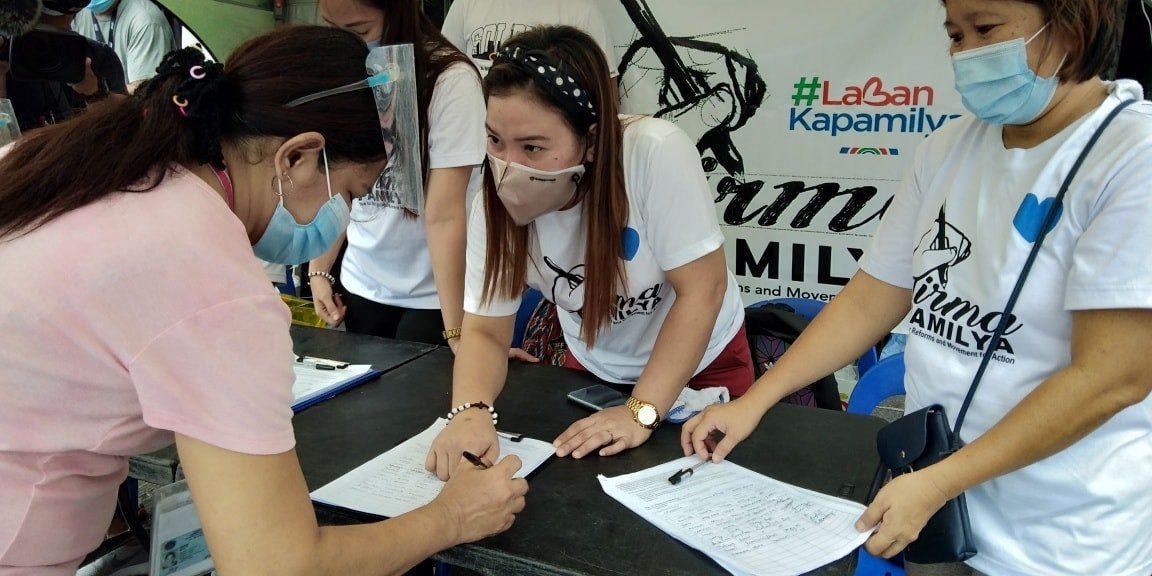Press Freedom Advocacy
The NUJP believes the Philippine Press can only be freer if attacks and intimidation against journalists and media workers are abated.
Aside from killings, threats and physical assault, media practitioners have been prone to intimidation through limiting and punitive laws and bills such as libel and cybercrime laws. These measures create a chilling effect, discouraging journalists to report truthful, relevant and critical information.
Through statements, activities and programs, NUJP actively campaigns to protect the constitutionally guaranteed rights to free expression and free press. It has campaigned for, among others, the enactment of a Freedom of Information law, decriminalization of libel, and government measures to stop attacks against media.
Freedom of Information
It has been 18 years since the country actively campaigned for a freedom of information law.
And rightfully so. The Constitution guarantees “the right of the people to information on matters of public concern” (Art. III, Sec. 7); and yet, mechanisms for easier access to information has yet to be in place.
An FOI law provides effective mechanisms for checks and balances in local and national government. NUJP has joined transparency groups, women’s groups, farmers, workers’ unions and human rights advocates calling for FOI’s passage, especially in the light of the recent corruption scandal involving the misuse of pork barrel funds.
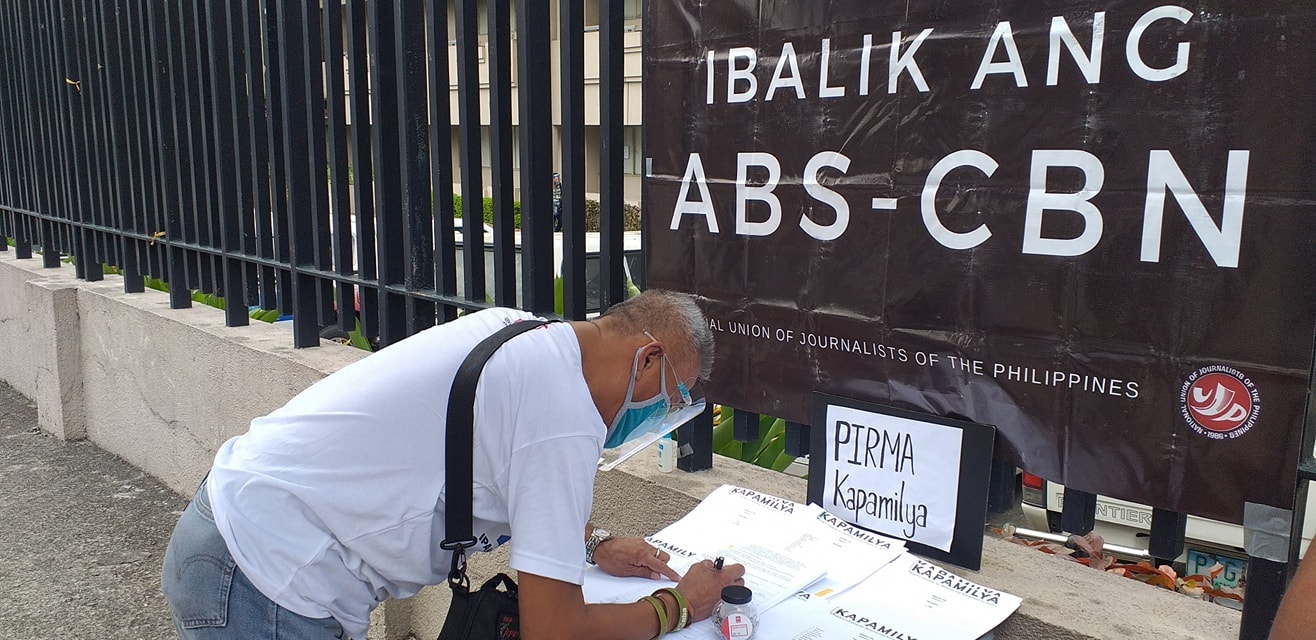
Decriminalizing Libel
The campaign to decriminalize libel has been there for at least three decades. Events in recent press freedom history have intensified the call to revisit the country’s libel laws, which press freedom and human rights advocates find to be excessive, outdated and prone to abuse.
The last years of Marcos Dictatorship saw journalists being slapped with libel suits for writing articles critical to President Ferdinand Marcos and his allies. The Committee to Protect Writers of the National Press Club actively campaigned against how libel is used during the Marcos years to stifle press freedom.
Years after, threats against free expression and free press by libelling journalists continue.
The NUJP joins press freedom groups in the call to scrap criminal defamation. Recent highlights of the campaign include the class suit filed against former First Gentleman Mike Arroyo, after his indiscriminate filing of libel suits against 46 journalists between 2003 and 2006; and, with the Philippine Internet Freedom Alliance, launching a series of forums and protests (online and offline) against the Cybercrime Prevention Act, which imposes higher sanctions on allegedly libelous articles published online and over social media.
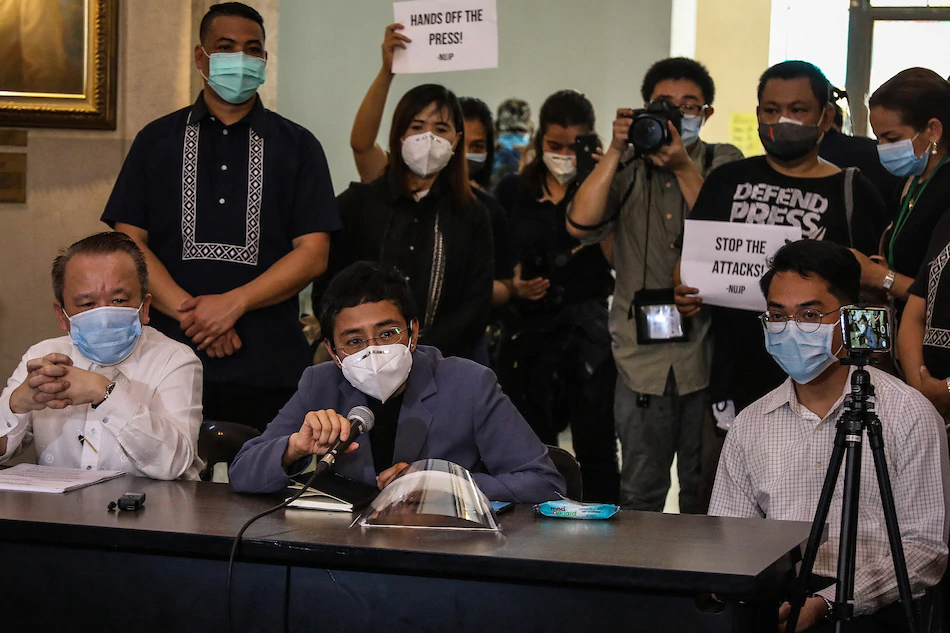
Photo by Jire Carreon, ABS-CBN News
No to Cybercrime Law
The Cybercrime Prevention Act of 2012 has made the space for free expression and free press by criminal libel more resticting. The inclusion of libel among the crimes that may be committed using computers, and harsh penalties even for those who share, retweet and repost writings published online, poses threat not only to colleagues in the media, but also to the general public.
NUJP joins internet freedom groups in calling for its scrapping.
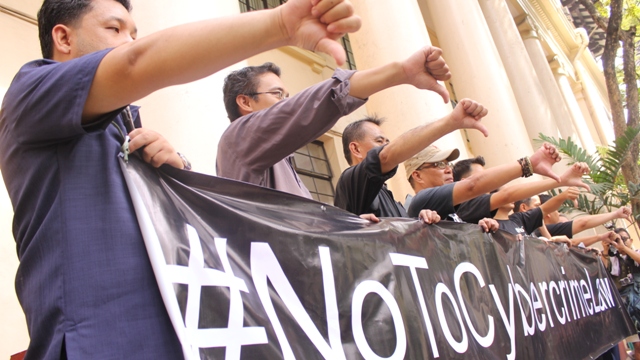
Case Monitors and Assistance
To aid in the speedy delivery of justice to attacked and slain journalists, the NUJP Media Safety Office actively monitors the progress of these cases. It releases up-to-date information on these cases when available, and conducts research to find patterns of how media cases are handled.
The case monitor helps in putting pressure on law enforcement and judicial bodies to address problems in investigating and prosecuting crimes against journalists.
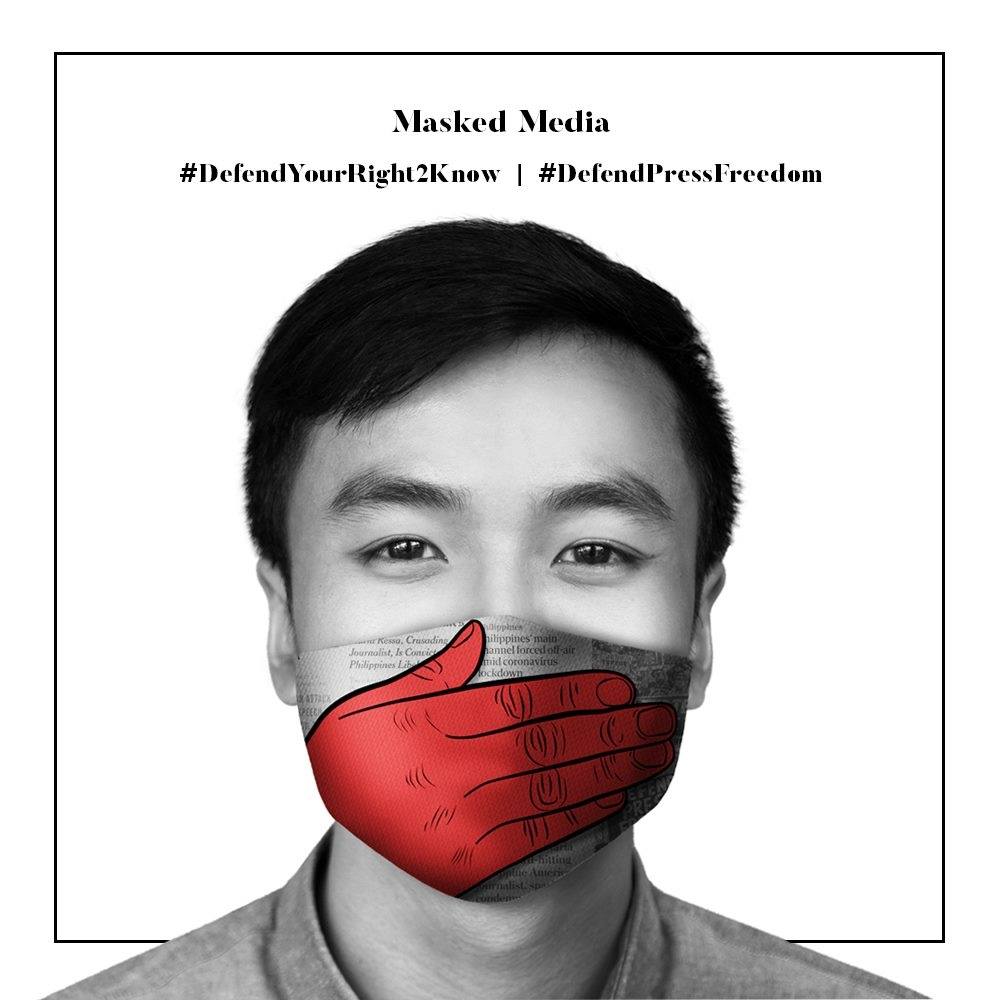
NUJP’s Masked Media campaign lets you extend assistance to journalists under attack. Every Red Hand facemask you buy helps build the Defense Fund from which financial assistance to journalists (and their families) facing threats, harassments are sourced. Buy now!

